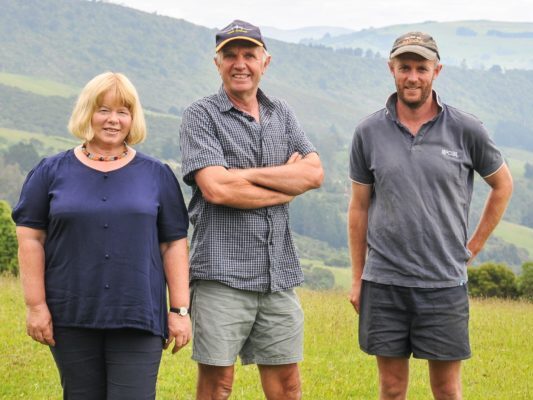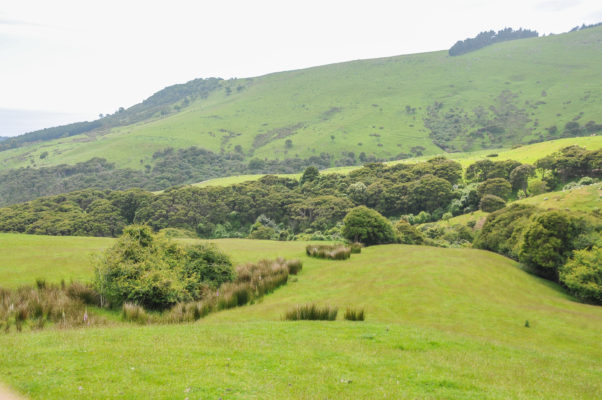With Orokonui Sanctuary nearby and the virgin forest of the Mihiwaka Reserve bordering their sheep and beef farm, Port Chalmers farmers John and Shona Chapman along with their son Robert and his family, had some good reasons for trapping predators on their own land.
“We started trapping on the farm about two years ago, mainly targeting stoats,” John says. “I also check two traplines for the (Beyond Orokonui) Halo Project. If we can get 90% of the stoats it will help the birds that go outside the sanctuary,” he says. “It helps makes Orokonui more secure, with less chance of invasion.”

The Chapman’s farm is 430 hectares in total, with 330 hectares of effective farmland. Robert also has an active pig trapping programme, shoots feral goats and was trapping possums prior to the latest OSPRI operation. John and Shona have QEII covenants in place for two bush blocks on their farm and hope to have another formally protected soon. They also have other areas where stock are excluded.
“They’re remnants of native bush,” John says, “They’re secondary growth, nice little pieces of mixed broadleaf that are good bird habitat. It was grazed out underneath by stock and we stopped that. But the birds were still getting eaten by predators. We’d only done half the job. We’d helped the flora but not the fauna.”
John hopes his trapping efforts will now complete the job and help the birds and other fauna to survive and thrive as well. He’s already noticed that tui and kereru are more prevalent and kaka have begun to visit from the Orokonui Ecosanctuary.
“The kaka come and go a bit,” says John. “We had a spell recently with a tree in flower when we could see the kaka from our livingroom. What a privilege it is. They hadn’t been seen in the wild here for 150 years!”
John and Shona were also amused by the antics of the kaka as they climbed ‘hand over hand’ in the tree branches, although Shona is a little worried about what the kaka might do to the family’s garden which is now full of a range of birds.
“Hopefully we’ll get the bush robin here too,” John says. “There’s a good population in Orokonui, but they’re very vulnerable to predators.”

A local tramping club takes responsibility for trapping in the neighbouring Mihiwaka scenic reserve, while the Halo group John belongs to includes Quarantine Island in Otago Harbour in their trapping initiative as well as mainland sites. John and Shona’s own property is spread out across the landscape and on the road down to Longbeach, a popular Otago holiday bach location. Lifestylers also find the area an easy commute to Dunedin.
“We’ve got 34 immediate neighbours, both farmers and lifestylers,” John confirms.
When John and Shona first started trapping, there were no shortage of predators.
“We got a lot of stoats originally when some of the first traps went in. We got one weasel too,” John says. “But we’ve not caught anything for the last 6 months at least. Some can be trap-shy but the University has been monitoring using tracking tunnels and they’re mostly finding mice.”
There was a TB outbreak not long ago on Mt Cargill. John feels for the farmers involved, but there has been one positive consequence. It has led to an increase in predator control.
“OSPRI have had a big possum operation which has been running in tandem with the Halo Project, firstly last winter and again this year. It’s really dialling back the predators!” John says.
It’s an ill wind, so the saying goes, that blows no good.
More benefits are likely to be seen in the coming months and years as the Halo Project, which began around John and Shona’s neighbourhood to support the ecosanctuary, expands further across the wider Dunedin landscape, with the launch of Predator Free Dunedin in early October. But that’s another story…
John and Shona Chapman were Otago regional winners of the 2018 Ballance Predator Free Farm Award.

